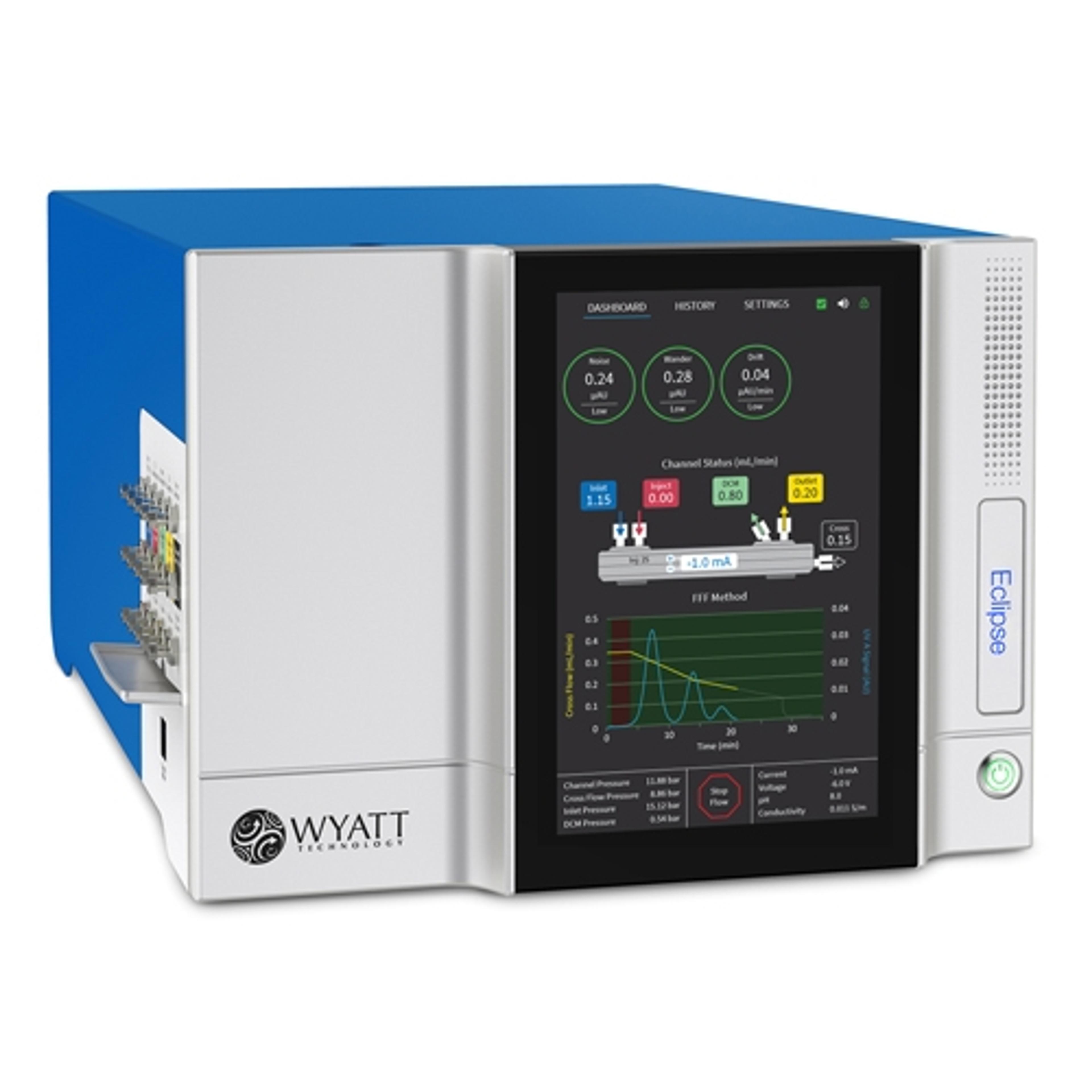Wyatt Technology announces breakthrough in Field Flow Fractionation (FFF) Separation Technology
This completely new line of separation instrumentation and software is designed for the widest range of analytes including proteins, and more
20 Oct 2020
Wyatt Technology, has revealed the launch of its 6th generation Eclipse™ FFF system that represents an entirely new paradigm of FFF technology.
This completely new line of separation instrumentation and software was designed for the widest range of analytes including proteins, polymers, viruses, gene vectors, liposomal drug nanoparticles, and more. Covering a range of sizes from 1 nm to 10 µm, the Eclipse offers programmable separation power for enhanced resolution within any size range. The system incorporates sophisticated micro-controllers and sensors with built-in intelligence and an intuitive interface to ensure simple use, reliability and repeatability across research, development and quality control environments.
The introduction of Mobility™ implements electrical/asymmetric-flow FFF for determining size-resolved zeta potential. The new Dilution Control Module™ (DCM) increases sample concentrations up to 10x, for higher sensitivity and fraction titer. Improved channel design provides unique and accurate temperature control for higher sample recovery,
reproducibility and pressure stability.
Geofrey Wyatt, CEO of Wyatt Technology, said, “To say that I’m proud of the accomplishments of Team Wyatt in developing the new Eclipse and Mobility hardware products, and VISION software package would be an understatement. Add in the complexities of coordinating so many contributors during a pandemic and we have an extraordinary story on our hands. The complete execution of a product redesign is difficult enough under ordinary circumstances, but in this case it was re-imagining of what FFF is and how it can be made more accessible to more scientists. The resulting products, their novelty and their utility move FFF from a relatively obscure area of separation science into the
mainstream.”
For more of the latest science news, straight to your inbox, become a member of SelectScience for free today>>

